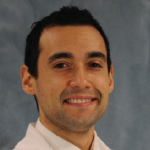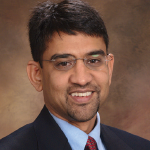The mentor–mentee relationship in medicine is a rapport between a more senior physician and a junior one, typically a medical student, resident, or early-career physician. The mentor can help the mentee improve his or her abilities and skills as a clinician by observing, assessing, modeling, and providing career guidance. A mentor is often one of the most valuable resources young physicians or students can have as they begin their journey into medicine.
Explore This Issue
July 2018So, how do the mentees know whether or not they’re on track? We asked three physicians about their current work and home lives, their career plans, and the advice they are following to plan successfully (“the mentees”). We then asked three more-senior physicians to comment on the mentees’ answers and use insight from their own lives to explain how they agree or disagree in their thinking (“the mentors”).
The first two of our mentees don’t have formal relationships with their commentators, but our final pairing has an established mentor–mentee relationship.
Resident and Faculty Member

Dr. Vila

Dr. Das
Mentee: Peter M. Vila, MD, MSPH, is a resident and postdoctoral research fellow in the department of otolaryngology–head and neck surgery at Washington University School of Medicine in St. Louis, Mo.
Mentor: Subinoy Das, MD, is an otolaryngologist with Ohio ENT & Allergy Physicians in Columbus.
What is an example of a “little thing” in your relationship with your mentor that has made a lasting impact on you?
PV: The most effective mentors I have had during my training (early on in medical school, during my research years, and throughout residency training) have all made the effort to make me feel respected and valued. Even if I was doing something that they would have done differently, rather than write me off, they would take the time to explain why they might do it a different way. The best mentors have been careful to explain in a nonjudgmental way that perhaps they have been in a similar situation in the past, and that particular approach didn’t work for them. I think we tend to forget that we learn a monumental amount of information and wisdom as we progress through training, and it’s easy to forget just how far we’ve come from where we started, so we can sometimes assume that trainees know something that they have not learned yet.
As I now progress to teaching and mentoring junior residents and medical students, I am realizing just how much effort it takes to be patient and make people feel valued. I think everyone, no matter how senior, continues to learn and at times feel uncomfortable with situations they may not have encountered before, but handling them with respect and integrity separates the great mentors from the rest. Remembering to value trainees and respect their mistakes and learning without condescension is an important lesson, regardless of how one may have been treated in the past.